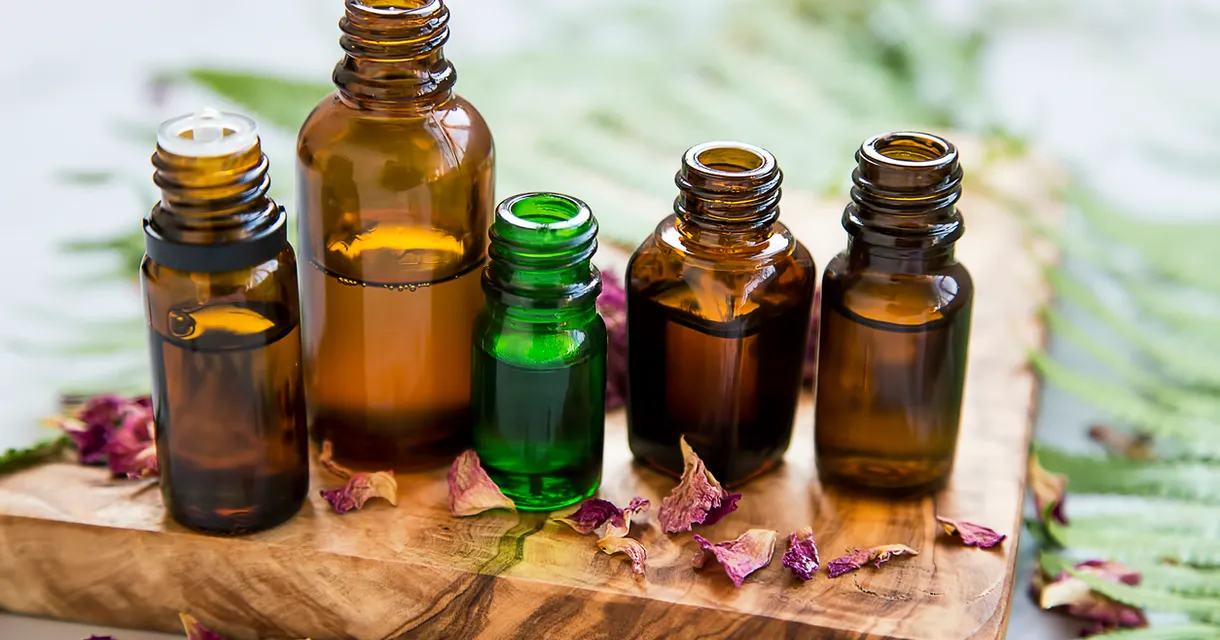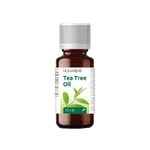Aromatherapy has been around for thousands of years, with ancient civilizations using plant extracts and oils for both cosmetic and perceived medicinal purposes. It was not until 1937, however, that the term ‘aromatherapy’ was coined by French chemist, René-Maurice. After burning his hand, he applied lavender oil and found that the burning sensation dissipated. He then went on to write a book on the topic of using essential oils to treat medical conditions.
Nowadays, aromatherapy is popularly used to refer to complementary therapy where natural materials and oils from plants are used to help improve mental and physical wellbeing. A complementary therapy is often used alongside conventional medical treatment to help relieve stress and induce relaxing arobas for good wellbeing.
Even so, there is a difference between aromatherapy, and medical treatment and professional therapy. Aromatherapy is now widely seen as a nice, complimentary addition to your self-care routine, it can be something to help you relax or fall to sleep on more busy days. If you have a health condition or stress that is impacting your daily life, aromatherapy and aromatherapy products will not be helpful and should not be used as an alternative to professional treatment. You must always consult your GP first to ensure you are given the right treatment to help improve your health, as well as to make sure treatment is going to be safe and effective for you.
What is Aromatherapy?
Aromatherapy refers to the use of essential oils and plant extracts in complementary. As the name suggests, essential oils are created from essences within plants. They may be extracted from the leaves, flowers, roots, resin, seeds etc. There are hundreds of different essential oils, all of which work in different ways and offer unique benefits.
Aromatherapy is not only used as a complementary therapy, but it also commonly used to simply improve mood and overall wellbeing. It can be a nice addition to people’s lives if they are looking to create a calmer environment through using oils in diffusers, or wanting to use these natural oils during messages to relieve muscle tension. The scents associated with these oils are also said to help one relax during showers and baths, adding some extra love to your self-pampering routine!
How Does Aromatherapy Work?
There are 2 main ways in which aromatherapy is thought to work; via inhalation and via skin absorption.
Inhalation: when oils evaporate into the air they can be inhaled. Some people choose to do this using a diffuser, a spray, or dropping essential oils into hot water. Not only do they have a pleasant smell, when inhaled the molecules can reach other areas of the body. Essential oils should only be inhaled when evaporated in the air. They should never be ingested as this can cause damage to the liver and kidneys.
Skin Absorption: other oils can be topically applied to the skin and absorbed into the body. Essential oils should never be applied directly to the skin however; they must first be diluted with a carrier oil such as almond or olive oil. Oils can also be infused with lotions and creams for topical application. Areas in which there are more sweat glands and hair follicles may promote better skin absorption.
What is Aromatherapy Used For?
Aromatherapy oils are often used in a variety of ways from room scents, to massage oils and even bathroom products. Due to their pleasant scents, they make a nice addition to your self-care and hygiene routine.
One popular essential oil you have properly heard of is tea tree oil, it has been said to offer a wide array of benefits from skincare properties to being used as an ingredient in insect repellent products! Often, tea tree oils are also used by masseuses during massages as they offer a pleasant scent and can be absorbed into the skin, helping to soothe the body and create a nice, relaxing atmosphere for relaxation.
What are the Benefits of Aromatherapy?
Whilst aromatherapy cannot treat medical conditions, some essential oils have been shown to help relieve skin inflammation and symptoms of daily stress. Aromatherapy and oils are thought to:
- improve mood and wellbeing by promoting relaxation
- reduce daily stress, agitation, and anxiety
- help manage or reduce pain when combined with massages
- soothe sore joints when combined with massages
- reduce inflammation when used as an ingredient in skincare products
However, the above will depend on what oil is being used. Whilst the scientific evidence to support these claims is limited, aromatherapy has become widely used to help soothe and relax people from everyday stressors.
Aromatherapy Oils and Essential Oils
There are hundreds of different essential oils used in aromatherapy. Each oil has its own unique uses and benefits. As a chemical substance, oils will react differently depending on their composition therefore, you should always follow manufacturer instructions and read the product box/leaflet before using a product and discuss the product with your GP if you have any concerns before use.
Some of the most common essential oils used in aromatherapy include:
- Ginger - thought to ease discomfort, soothe aches and help reduce inflammation. Often used during massages or physical therapy for the relief of joint pain.
- Chamomile - thought to have soothing properties, often used in the treatment of skin conditions. It is also thought to have relaxing properties that can help to alleviate daily stress.
- Jasmine oil - A sweet-smelling substance that is made from the flowers of the jasmine plant. Often believed to have anti-inflammatory properties making it an ingredient sometimes used in general skincare products.
- Lavender oil - thought to have antiseptic properties. It also aids relaxation due to its pleasant scent and aromas.
- Lemon - Offering a delightful, citrus scent, lemon is often used in skincare products and fragrances to wake you up and get you ready for the day ahead.
- Tea tree oil - thought to have antimicrobial and antiseptic properties, tea tree is commonly used in skincare products to help in the treatment of acne by relieving symptoms. Tea tree oil should never be ingested as it is toxic.
- Rose - Rose oil is often used in skincare products, designed to have a soothing effect on the skin.
- Neroli - thought to help reduce symptoms of pain and inflammation, as well as having antimicrobial properties that make it ideal for use in skincare products, such as body lotions.
- Patchouli - thought to improve the symptoms of skin conditions such as dermatitis, as well as helping to relieve cold symptoms, and promote relaxation.
The Risks of Aromatherapy
Whilst most essential oils are safe for use, it is important to speak to a GP or pharmacist if you are currently on medication already. Essential oils have the potential to interact with certain medications and could cause them to become ineffective. In addition to this, aromatherapy should not be used alone if conventional medicine is prescribed by a doctor. The scientific evidence for its effectiveness is lacking and therefore it should only be used as a complementary therapy.
Essential oils can be particularly unsafe for people with certain conditions, therefore you should not use them without consulting a GP first if you have:
- hay fever
- asthma
- epilepsy
- high blood pressure
- eczema
- psoriasis
- or you are pregnant
Essential Oils: Skin Irritation
In addition to this, using essential oils directly on your skin without diluting them first can cause irritation or result in a rash. If essential oils are ingested, they could cause damage to your internal organs. You could also potentially have an allergic reaction to essential oils which could result in an asthma attack, headaches and nausea.
If you experience side effects due to essential oils, stop use immediately and visit your GP. If you ingest essential oils or experience a severe allergic reaction, call 999 or go to A&E immediately.
Aromatherapy: NHS Guidelines
The NHS website provides guidance on aromatherapy, complementary therapies and alternative medicine. The NHS also urges people to use caution when visiting an aromatherapist, noting that while conventional medicine is a heavily regulated area, ‘apart from osteopathy and chiropractic, there's no professional statutory regulation of complementary and alternative treatments in the UK.
This means:
- it's legal for anyone to practise the treatment, even if they have no or limited formal qualifications or experience
- these practitioners are not legally required to adhere to any standards of practice or to join an association or register’
If you are experiencing any medical symptoms or have health concerns, you must visit your GP for support. Aromatherapy should be seen as an addition to your pampering or self-care routine and not a treatment for medical conditions.
Aromatherapy at Home
Looking to improve your self-care routine? You can practice aromatherapy at home, on yourself, to create a more relaxing routine and create a fresh aroma in your home.
Homeopathic medicines are also commonly used as complementary therapy. We stock a wide range of homeopathy products including lavender body lotion and arnica cream. We also offer a range of natural medicinal products including alternative pain relief and herbal remedies.
Browse our range of aromatherapy products or speak to a pharmacist in branch to discuss essential oils today!

